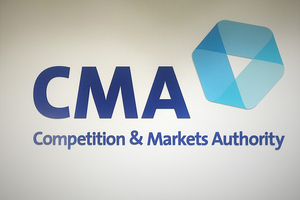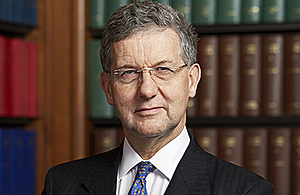Throughout our organisation we’re having to rapidly adapt to new ‘normals’, whether this means unexpectedly working from home or getting used to new ways of working to maintain social distancing in the workplace.
For some, like Sellafield Ltd’s Product Development Manager Mark Taylor and his team, it’s often a bit of both.
What would a ‘normal’ day at work look like to you before the Covid-19 pandemic?
The Product Development department is part of the wider Engineering & Maintenance directorate, focussed on a range of activities including rapid prototyping, testing and innovation to make commercially-available solutions that help us manage the UK’s nuclear legacy.
A lot of my time is spent coaching other engineers and speaking to a wide range of colleagues from across the business to understand their problems and how we can help. As a result, my time is split between office working and being on plant or in our workshops.
For the last year we’ve been concentrating on developing our capability, including the growth of a 3D print hub that came online just before the lockdown.
How have things changed for your team in recent weeks?
In terms of production we’ve switched to fully supporting Sellafield Ltd’s response to Covid-19, transforming parts of our workshop into a production line to manufacture face shields for the NHS and helping to ensure quality control based on a number of designs, using different manufacturing techniques.
As with many teams across our organisation, the major change for us is that lots of our people are now working from home or having to approach things very differently when they come in to work.
What has it meant for you personally?
It’s meant working with an even wider range of stakeholders than I normally would, from the multi-agency support team and the NHS to areas of the business I don’t usually work with.
I’m avoiding going into the workplace where possible, meaning I’m working from home most of the time. When I do go into the workplace, I’m careful to observe the measures we’ve put in place to maintain social distancing; like making sure we stay 2m apart and setting up in separate offices in groups of two.
It takes some adapting to, but we’re used to strict safety rules and procedures at Sellafield. I find it’s often the simple encounters that are the most difficult – you realise how far 2m is when you have to pass someone on the stairs or in a narrow corridor.
How are you finding the changes?
This is obviously a situation none of us saw coming but the rapid response from our organisation and industry has been amazing. I’m really grateful that my team and I have the opportunity to lend our brains, hands and equipment directly to the response effort and that hundreds of colleagues are doing the same. From our graduates and contractors to people on industrial placements, everyone is pulling together to give their support wherever they can.
The things I miss are the people, seeing the iconic Sellafield skyline each morning and just walking through the workshops watching things being made every day.
We’re all still getting used to the technological and psychological challenges of working from home – video conferencing will never replace face-to-face contact – but this definitely has some advantages. Having the time and space to think, away from the day-to-day distractions, has been a great experience. I’m also spending a lot more time with my family and now my dog gets to join me in my office. I’ll certainly consider working from home more often in the future.
As a team we’re also finding that, with much of our project work on hold, we have more time for the things we often don’t get around to. Normally it can be difficult not to get immersed in the details of the projects we’re involved in – we’re engineers after all – but we now have some space think more strategically about the improvements we’ll make once we get back to the office.
Every day has its challenges but it’s important to look for the positives and appreciate just how far we’ve come and how much we’ve achieved in such a short space of time.


